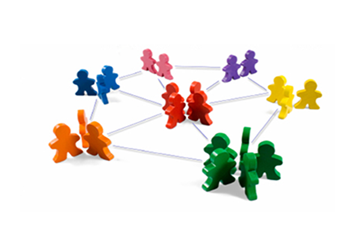Philosophy Statements
A Coach/External Consultant is a neutral person who is a Subject and Process expert, serving the client to deliver a mutually agreed up on goal/objective. His/her loyalty must be to the organisational and target audiences’ interest/development and not in serving the personal agenda of some organisational role holders.
The organisation/client knows what is the best for them; hence engagement and interaction with external consultant must thrive in an atmosphere of candid sharing of organisational issues and needs and maintenance of mutual confidentiality.


It is meaningless to get into a coaching engagement without adequate number of agreed up on sessions with adequate intervals between such sessions; commitment by all parties involved-the organisational role holders, the coachee and the coach-is a must for successful outcomes.
Working with a few clients for many years together is best suited for both the organisation and the consultant. It builds better understanding of the business, builds trust and confidence and mutual benefits in all respects to both.
We carry out Corporate Executive Coaching on a one to one basis after executing a contract with the client organisation. The process involves meetings with the CEO, Heads of Line functions, immediate superior of the prospective coachee, the coachee and the Head of HR function. Generally the engagement will be for 6 to 12 sessions of one and a half hours each duration.
Our Organisational Effectiveness Enhancement Programmes are carried out through a process of Organisational Sensing, Diagnosis, Presentation of sensing data & diagnosis to the Management, carrying out relevant indoor/outward bound learning (OBL) programmes to address specific issues, re-align attitudes, drawing out action plans for application at work place, changing systems & processes where ever required, and review of action plans application through back – stopping.

Training Methodology
Indoor Programmes
Indoor Programmes
Our Indoor programmes are carried out at, the clients’ premises or any resort / hotel. These programmes are a combination of simulations in indoors, a few soft outdoor activities, concept sessions.We also carry out Team related programmes & Leadership Development programmes based on mutually agreed upon objectives.
OBEL Programmes
OBEL Programmes
Our OBEL programmes are carried out in outdoor settings where one gets to examine the consequences of one’s actions / decisions and, upon reflection and internalisation, to learn from one’s experience. The methodology followed is Experiential Learning in an Outward Bound Learning Environment(OBEL) following (ALC).
OBEL Process
OBEL process
For building a strong department, OBEL strategy starts from one single person making him/her strong in many ‘self-aspects’ then transforming them to work in a team efficiently then finally making them well-functioning team players.
The methodology followed is Experiential Learning in an Outward Bound Learning Environment(OBEL) following David Kolb’s Adult Learning Cycle (ALC) spiral as shown below:-

How the OBEL Process Works
A case study simulation of Teaming
For building a strong department, OBEL strategy starts from one single person making him/her strong in many ‘self-aspects’ then transforming them to work in a team efficiently then finally making them well-functioning team players.
Department


Self
- Gain self confidence & better self-image.
- Overcome fear & anxiety.
- Be comfortable in ambiguous situations.
- Valuing and listening to others’ ideas and willing to try them out.
- Spirit of inquiry & not rejecting other’s ideas.
- Levelling between ‘Underdogs’ & ‘Tigers’.

Transformation for the team
- Become aware of my position and team willingness to take a stand for a team.
- Value the feedback given; receive, reflect and accept.
- Passive members beginning to take risk for the team.
- Become consultative within members to pool team resources.
- Aware of choosing of particular team functional roles.
- Importance of asking for help.
- Valuing and listening to other’s ideas and willing to try them out.

Team
- Accept differences in skills, competencies etc.
- Reducing rework / saving time / speedy work.
- Importance of asking for and giving help.
- Valuing and listening to others’ ideas and willing to try them out.
- Concurrent work to avoid idling of people
- Importance of multi- skilling
- Sensitivity to internal customer